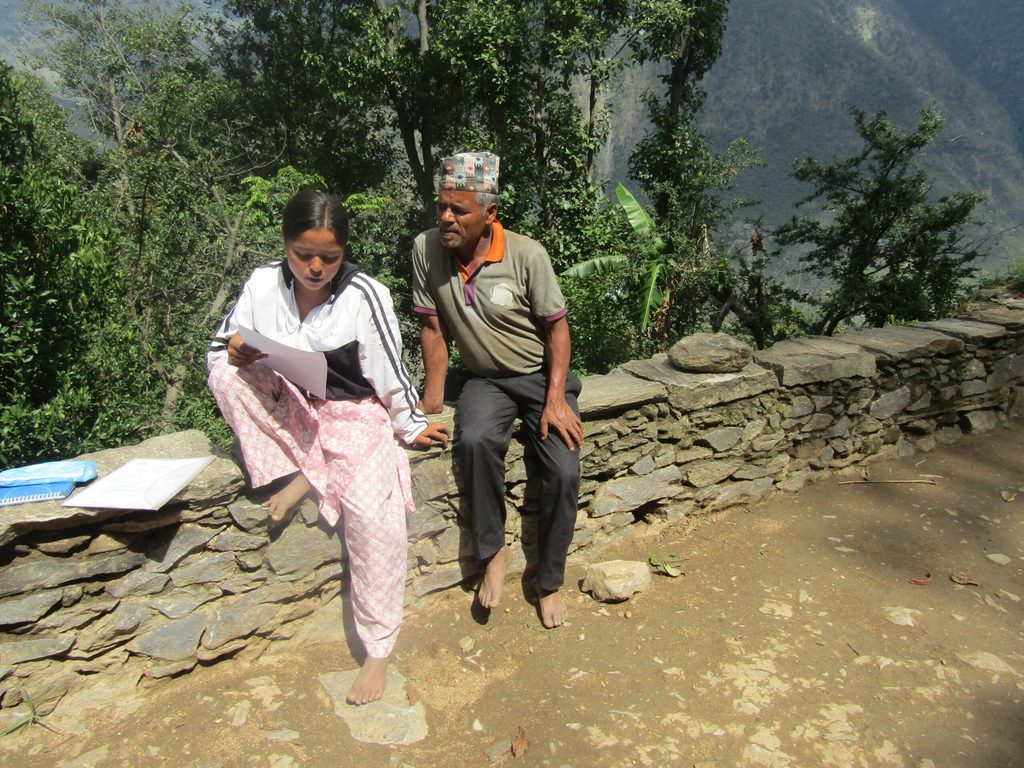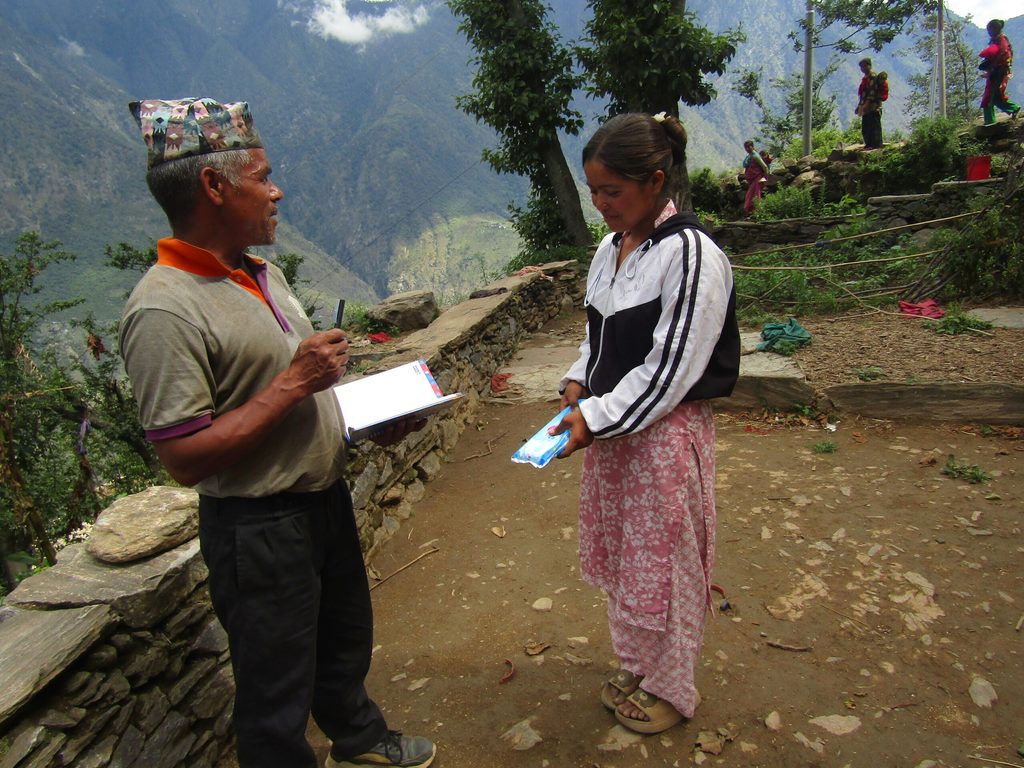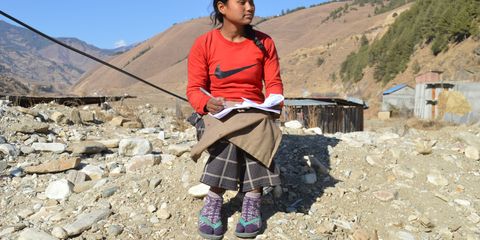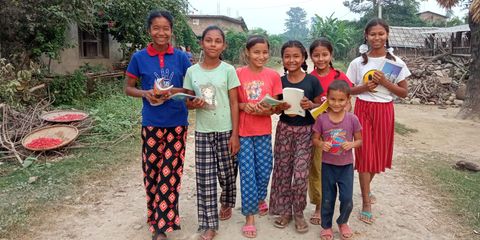“I changed for my daughters”- Harikrishna
This Father’s Day, we honour fathers like Harikrishna, who challenge taboos and support their daughters during menstruation. Here is his story, in his own words.

“My name is Harikrishna. I’m 52 years old and live in Kalikot with my wife, 2 daughters, 2 sons, and grandchildren. I’ve served my community for years as a ward member, Chairperson of the School Management Committee (SMC), and in other leadership roles. Like many others in my village, I once believed menstruation was something impure and shameful.”
“At home, my daughters had to follow strict rules during their periods. They weren’t allowed to enter the kitchen, had to stay away from the family, and even missed school. These practices were seen as necessary to protect tradition and family honour. I never questioned them, until I became involved in the discussion related to menstrual health and hygiene linked with access to clean water, sanitation, and pads.”
“Through my role as SMC Chairperson, I joined various activities at the school level. I attended orientations for teachers and SMC members, learning about menstrual health and the importance of hygiene practices. I joined interactive meetings with school staff, parents, and students that focused on creating clean and lasting menstrual health facilities in schools.”
“Slowly, my perspective began to change.”
Learning through engagement
“At the community level, I was invited to join an intergenerational dialogue where adolescent girls spoke directly with community leaders like me. I joined other local leaders and teachers, and I was truly amazed to see how confidently the girls spoke about their rights. They urged us to support them and stand by their side in breaking period stigma and harmful taboos.”
“This experience opened my eyes. I also took part in other awareness sessions for community leaders and joined open discussions about menstruation. Through these activities, I learned both the biological facts and the social realities of menstruation. More importantly, I realised how much harm our traditional practices have caused, affecting girls’ health, their confidence, and their ability to stay in school.”
“Through this, I realised just how much discrimination had existed in the past. Regardless of what others in the community might say, I felt it was my duty to create a supportive and dignified environment at home for my wife and daughters, and in my community for other women and girls.”
“Now, there is no discrimination in my household. I even go to the market myself to buy sanitary pads for my daughters. These were not just symbolic changes, they brought real improvements. My daughters started attending school regularly during their periods. Our emotional bond grew stronger. And gradually, my actions began to influence others in the community too.”

From tradition to transformation
“My daughter Kokila shared, “In previous days, my father would avoid talking to us or keep his distance during menstruation. But now, seeing him go around the village and speak out against menstrual discrimination makes me really happy. At home, my mother and I have noticed how he helps with household chores during our periods and encourages my younger brother to help too.”
“Today, people see me as a role model father and a local advocate for menstrual health and hygiene. I actively encourage other men to speak out, challenge harmful norms, and support the women and girls in their lives. I still work proudly as a farmer, but I also continue to speak up against traditional practices that harm our daughters.”
“Like many men in my community, I was once shaped by deep-rooted beliefs. But I’ve learned that with the right knowledge and opportunities to reflect, anyone can change. My story proves that real transformation starts at home, and that fathers have a powerful role to play in building more supportive, inclusive communities.”
About the project
The Menstrual Health and Hygiene and WASH Improvement project is a three-year initiative aimed at improving the health and well-being of adolescent girls. Led by Plan International Nepal and HuRENDEC Nepal, it works with 10 community schools across Raskot Municipality in Kalikot. The project not only strengthens menstrual health education and upgrades WASH facilities but also actively involves fathers, families, schools, and communities. By encouraging fathers to support their daughters and challenge harmful social norms, the project helps create a more inclusive and supportive environment for girls at home and in school.


